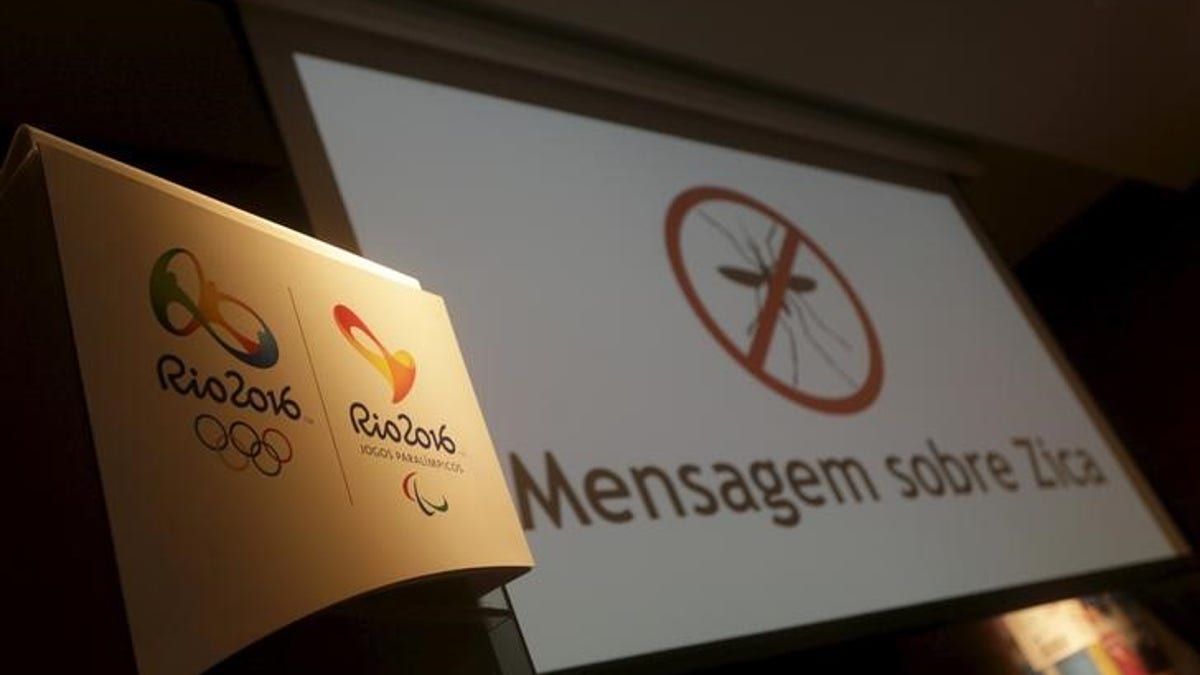
(Copyright Reuters 2016)
RIO DE JANEIRO – Alarmed by the growing global scare about the spread of the Zika virus, Brazilian officials and Olympic organizers are telling would-be visitors to the Games to fear not.
The month of August, when Rio de Janeiro will host the Olympics, is mid-winter in the southern hemisphere so the weather will be drier and cooler than usual in the tropical city, providing a less hospitable climate for the mosquito that spreads the virus.
"There's not a history of much activity for the mosquito at that time," Rio's mayor, Eduardo Paes, recently told reporters.
But it's not that simple, scientists say.
True, rainfall and temperatures for the month are generally below the annual average.
But, even if less active than in warmer months, the mosquito, Aedes aegypti, never actually disappears.
Its eggs, which can lay idle for more than a year, can hatch in a matter of minutes with any quick surge in humidity or heat, which have been common in recent years, even in the tropical winter.
A Reuters review of municipal health records shows that mosquito-borne infections in August of some years can be as bad or worse than in the usual peak months for infections in others.
"Weather is relative," says Nancy Bellei, director of clinical virology at the Brazilian Society of Infectology. "You can't just hope for cool temperatures and hope that the virus won't spread."
In addition to climate, contagion depends on other factors, like whether a virus is actually circulating near a given population, whether those people have had previous exposure to it, and how prevalent the virus may be at any particular time.
Aedes aegypti, which transmits the virus by biting an infected person and then moving on to bite another, wasn't even known to carry the Zika virus in the Americas until last year.
If they fall ill, patients generally show signs of Zika or the related viruses of dengue and Chikungunya, which are carried by the same mosquito, within a week of the mosquito bite.
Municipal health data for dengue in Rio, a city of more than 6 million people, shows how variable the rate of infection can be. Of all the cases recorded each year since 2011, infections in August ranged from less than 1 percent of the annual total, in 2012 and 2013, to nearly 6 percent in 2014.
But August of some years can be worse than the typical peak months of others. Consider last August, when Rio recorded 794 cases of dengue. The figure is greater than the 773 cases reported in 2014 during the combined months of March, April and May, normally three of the worst months for infection.
This year, the El Ni��o weather phenomenon, which is causing higher temperatures in southern Brazil but is expected to fade by mid-year, could be contributing to another surge in local dengue infections. In January, municipal health records reported 1,122 cases, compared with only 165 a year ago.
COLLECTIVE RISK
Much is still unknown about the Zika virus, including believed links to suspected brain deformations in as many as 4,000 developing babies in Brazil. Researchers are also studying whether the virus can be transmitted through sex, blood transfusions or other contact with bodily fluids, like saliva and urine, where scientists recently found traces of the virus.
But scientists agree the mosquito remains far and away the primary means of transmission.
Any big gathering provides opportunities for viral infections, from the common cold to sexually transmitted diseases.
Brazil's government expects as many as 500,000 foreign visitors during the Rio Olympics, which start Aug. 5 and end Aug. 21. City and Olympic officials say they will inspect venues and tourist attractions daily to ensure they are clear of puddles and other possible breeding sites for mosquitoes.
But scientists say authorities are being short-sighted by thinking only about local weather and insect conditions. Some visitors, they note, will take advantage of their Olympic travel to see other parts of Brazil and Latin America, where the virus is also present and where the climate and rate of mosquito reproduction will be wholly different.
Though the risk of infection or illness could indeed remain low for individual travelers, especially for a virus that doesn't even cause symptoms in four out of five people infected, the Games could still enable Zika to travel farther than it already has.
"The biggest risk is a collective one," says Chris Barker, an epidemiologist who studies Zika, dengue and related viruses at the University of California, in Davis. "The probability that at least some travelers to Rio will get Zika is significant."
Some scientists worried that foreign visitors to Brazil for the 2014 World Cup soccer tournament would fall sick with dengue. But a 2015 study published in The Lancet, the British medical journal, reported that very few actually did.
Still, that event was held in 12 different cities, some of which were suffering from the worst drought in Brazil in decades and a consequent drop in the mosquito population.
Rio recorded a total of 2,649 dengue infections that year, compared with 18,059 in 2015. It recorded more than 130,000 in 2012, the worst year for dengue so far this decade.
Like many urban landscapes across Latin America, Rio is rife with unplanned development, poor construction and inadequate water, garbage and sewer services. That offers many nooks and crannies, many of them indoors, where spilled or poorly stored water, regardless of rainfall, can sit idle and provide beds for mosquitoes larvae.
"Heat can be even more of a problem than rain," says Denise Valle, an entomologist who studies Aedes aegypti at the Oswaldo Cruz Foundation, a public health and medical institute that is among those leading the research for Zika, dengue and other tropical diseases. "The eggs are everywhere, in neighborhoods, in houses. If it warms up, the mosquito comes back."
(Additional reporting by Joshua Schneyer; Editing by Kieran Murray)